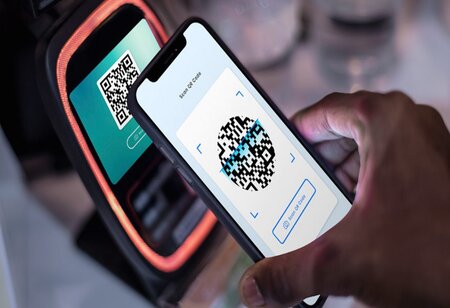e-RUPI launched by PM Modi; To play a huge role in making DBT, transparent, leakage-free' benefits
 Launching the digital payments solution e-RUPI on Monday, Prime Minister Narendra Modi stated the voucher-based system will play a huge role in making DBT (direct benefit transfer) more effective in digital transactions in the country and give a new dimension to digital governance. This will help everyone in targeted, transparent and leakage free delivery. e-RUPI is a symbol of how India is progressing by connecting people’s lives with technology.
Launching the digital payments solution e-RUPI on Monday, Prime Minister Narendra Modi stated the voucher-based system will play a huge role in making DBT (direct benefit transfer) more effective in digital transactions in the country and give a new dimension to digital governance. This will help everyone in targeted, transparent and leakage free delivery. e-RUPI is a symbol of how India is progressing by connecting people’s lives with technology.
The e-RUPI platform, has been developed by the National Payments Corporation of India (NPCI), Department of Financial Services, Ministry of Health and Family Welfare, and the National Health Authority is a cashless and contactless digital payment medium, which will be delivered to mobile phones of beneficiaries in form of an SMS-string or a QR code.
This people-specific and purpose-specific payments system will essentially function like a prepaid gift-voucher that will be redeemable at specific accepting centers without any credit or debit card, a mobile app or internet banking. e-RUPI will connect the sponsors of the services with the beneficiaries and service providers in a digital manner without any physical interface.
The Prime Minister also suggested about how technology was being leveraged to bring in transparency and integrity in transactions while making available newer opportunities for the poor. “For reaching today’s unique product, foundation was prepared over the years by creating the JAM (Jan Dhan-Aadhar-Mobile) system which connected mobile and Aadhaar. Benefits of JAM took some time to be visible to people and we saw how we could help the needy during the lockdown period while other countries were struggling to help their people,” he said.
He further added, over Rs 17.5 lakh crore has been transferred directly to the accounts of the people via DBT through over 300 schemes. “The biggest benefit of this all is that Rs 1.78 lakh crore were prevented from going to the wrong hands.”
As per government, e-RUPI — built on NPCI’s UPI system — would ensure leak-proof delivery of welfare services. It will initially be deployed alongside the National Digital Health Mission and to support the vaccine drive, but added that it can also be used for delivering services under schemes meant for providing drugs and nutritional support.




